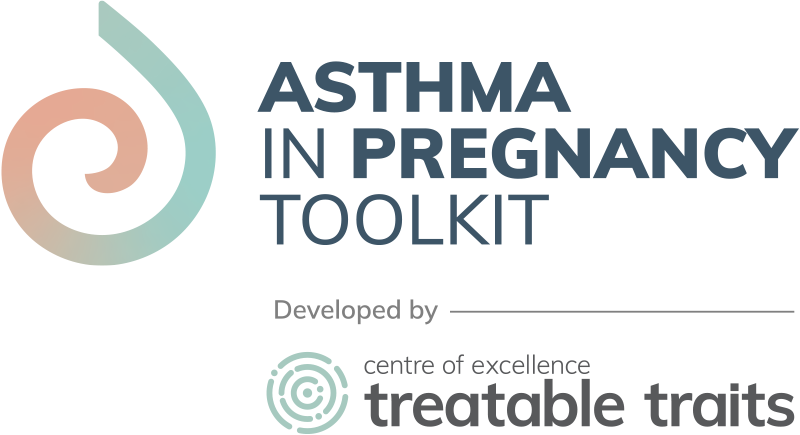Asthma in the mother, and particularly poor asthma control during pregnancy, can influence outcomes for the pregnancy and the baby.
The evidence for an association between asthma during pregnancy and an increased risk of poor pregnancy outcomes has been summarised in a series of systematic reviews and meta-analyses, first published in 2011, 2013 and 2014 (Murphy et al. 2011, 2013, Namazy et al. 2013, Wang et al. 2014), with analyses for some outcomes updated in 2022 (Xu et al. 2022). Additional recent observational studies also support these findings.
Compared to women without asthma, women with asthma are at increased risk of poor outcomes for the baby including:
- Low birth weight and small for gestational age (Murphy et al. 2011)
- Preterm birth (Murphy et al. 2011)
- Neonatal hospital admission (Murphy et al. 2013)
- Congenital malformations (Murphy et al. 2013)
- Later development of asthma in the child (Martel et al. 2009)
Compared to women without asthma, women with asthma are at increased risk of poor maternal outcomes including:
- Pre-eclampsia (Murphy et al. 2011)
- Gestational diabetes (Wang et al. 2014)
- Caesarean section (Wang et al. 2014)
Many of these risks are small, but statistically significant (e.g. congenital malformations).

All data are from the same series of meta-analyses reporting data as relative risk (Murphy et al. 2011, Murphy et al. 2013, Namazy et al. 2013, Wang et al. 2014).
Some of these risks are further increased in women who have uncontrolled asthma and/or exacerbations of asthma during pregnancy including:
- Low birth weight and small for gestational age (Namazy et al. 2013, Xu et al. 2022)
- Preterm birth (Namazy et al. 2013)
- Later development of asthma in the child (Martel et al. 2009, Liu et al. 2018).

Compared to pregnant women with asthma who do not have an exacerbation. All data are from the same series of meta-analyses reporting data as relative risk (Murphy et al. 2011, Murphy et al. 2013, Namazy et al. 2013, Wang et al. 2014).
The impact of active asthma management
Active asthma management is associated with a lowered risk of:
- Preterm labour and preterm birth (Murphy et al. 2011)
- Neonatal hospital admission (Murphy et al. 2013)
- Gestational diabetes (Wang et al. 2014)
- Later development of asthma in the child (Morten et al. 2018)
The use of common reliever (beta-agonist) and preventer (inhaled corticosteroids) medications was not associated with any increased risks of:
- Low birth weight and small for gestational age (Xu et al. 2022)
- Preterm birth (Xu et al. 2022)
- Congenital malformations (Murphy et al. 2013)
Bronchodilator use was associated with a lowered risk of:
- Gestational diabetes (Wang et al. 2014)
